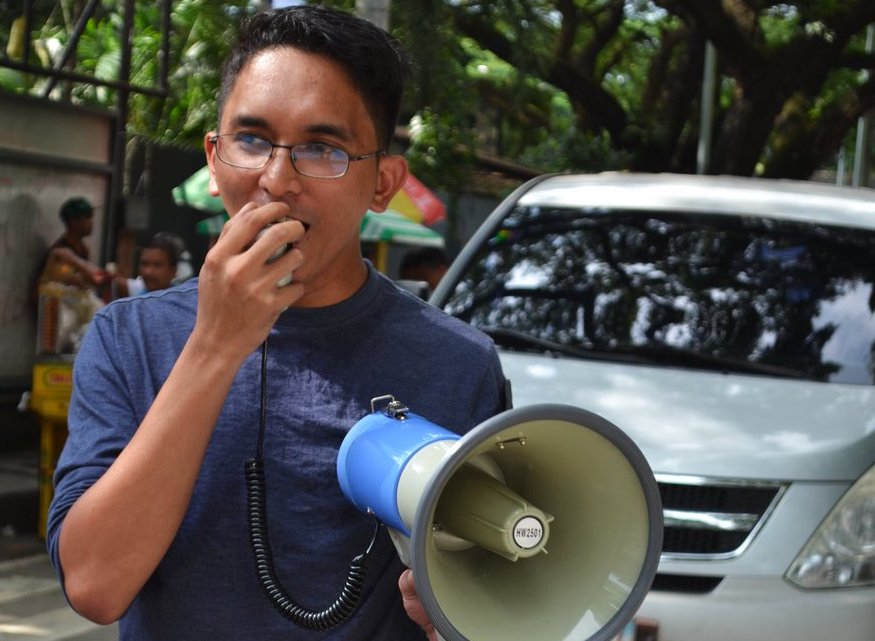Just recently I journeyed 1,000km with 700 Indigenous leaders and advocates in a protest caravan that aimed to bring our issues from the southern part of the Philippines to the seat of our government, which has long been neglecting us. I represented Panalipdan Mindanao Youth (Defend Mindanao Youth). We advocate for environmental protection and peoples’ land rights. We fight against the plunder of our environment – the plunder by large-scale, foreign-owned mining operations, logging companies, mega dams and the expansion of monocrop plantations.
As a youth leader, I am not spared from the risks and threats that human rights defenders in our country are subjected to. Surveillance of our office and my home has become commonplace. Unidentified men ask for my whereabouts. I receive threatening messages from unknown numbers and on my social media accounts. Clearly they are trying to silence me.
However, more than the personal risks that I face, I am more concerned about the safety and well-being of the Indigenous communities who are located in remote areas. I have worked with them, lived with them, marched on the streets with them. I have seen how they have fought so hard to keep the piece of land that has been passed to their care by their forefathers – the land that is their life. My experience pales in comparison to their struggles.
At least 144 extrajudicial killings of activists and human rights defenders have been recorded since our current president, Benigno Aquino III, assumed office. Out of this number, 71 were Indigenous leaders... and the number is growing.
Just this September, an executive director of a school for Indigenous children was brutally murdered by a state-backed paramilitary group. His hands were tied behind his back and his throat was slit open. He was slaughtered like a wild boar. After killing him, his assailants gathered the community members. Two of the community leaders were then gunned down in front of the community – in front of relatives, in front of children. Everyone was then threatened that if they did not leave the community, they would suffer the same fate.
The community had long been resisting the plunder of their environment. Instead of accepting the promise of money from mining companies that will supposedly improve their economic situation, the community supported the establishment of the alternative learning school. They sent their children there, believing that education would be their way to a better future – education that is crafted from their culture, from their traditions, from their connection with their ancestral land. They wanted to educate the future generation so that they can decide their own form of development. And for this they are being killed.
But despite the killings, they have not backed down. So neither will I.
Let our gathering here today be a sign of solidarity against those who have oppressed us. Let us all remember those who gave up their lives so that others may live. Let they serve as inspiration for all of us to keep our firm resolve to continue no matter what.

Surveillance of our office and my home has become commonplace. Unidentified men ask for my whereabouts. I receive threatening messages from unknown numbers and on my social media accounts. Clearly they are trying to silence me.
